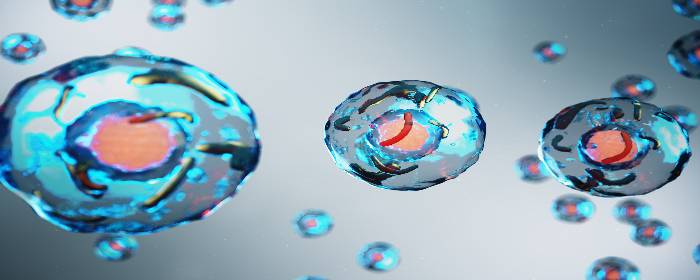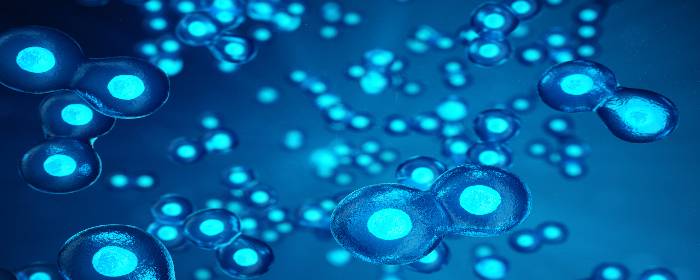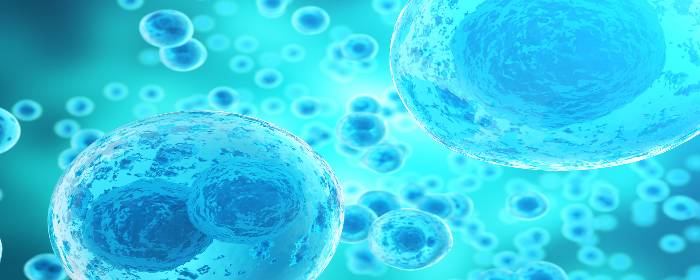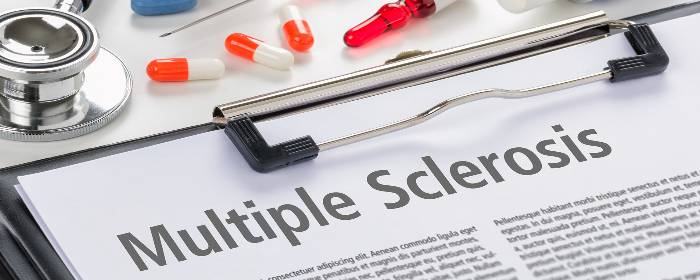
by admin | Apr 19, 2019 | ALS, Mesenchymal Stem Cells, Stem Cell Research
Amyotrophic lateral sclerosis (ALS) is an incurable neurologic disorder that causes muscle weakness, and disability. In ALS, nerve cells degenerate causing muscle weakness and atrophy. ALS affects the nerve cells that connect the brain to the spinal cord (upper motor neurons), and nerve cells that connect the spinal cord to muscles (lower motor neurons). While some patients with ALS will experience paresthesias (numbness and tingling), most nerves that detect sensations remain intact until the very latest stages of the disease. Over time, people with ALS may experience cognitive problems such as mild dementia, though most stay mentally sharp. Patients with ALS may also experience Parkinson’s-like symptoms, such as tremor and slowness of movement (bradykinesia). When the nerves that control swallowing or breathing become dysfunctional, ALS can become life-threatening or lethal. Damage to these nerves and muscles could lead to aspiration pneumonia, and respiratory failure, respectively.
ALS is also known as Lou Gehrig’s disease because the famed New York Yankee publicly struggled with ALS. Perhaps people alive today are more familiar with another patient who suffered from ALS, the Nobel laureate physicist, Stephen Hawking. Dr. Hawking was well known for being confined to a wheelchair and almost completely paralyzed, requiring a specialized computer interface to communicate.
There is no specific treatment for ALS. Therapy is aimed at controlling the symptoms of the disease. For example, patients may have a breathing tube placed in their neck (tracheostomy) and be connected to a ventilator to help support breathing. Likewise, a feeding tube in the stomach can help patients receive hydration and nutrition if they cannot safely swallow food because of neck muscle weakness. Physical therapists help patients maximize the strength and function. Certain medicines can be used to help treat muscle spasms, sleep problems, pain, and depression.
Since there is no cure for ALS, and really no specific treatment for the condition, there is considerable interest in discovering effective treatments. One of the most promising potential therapies is to use stem cells to treat ALS. Since ALS is caused by the destruction and loss of motor neurons, a reasonable treatment approach is to use stem cells that can become motor neurons and promote motor neuron growth and development.
Recently, researchers conducted two clinical trials to evaluate the safety and feasibility of using bone marrow-derived mesenchymal stromal cells to treat patients with ALS. In one clinical trial, the researchers infused stem cells intravenously, while in the other they infused the stem cells into the cerebrospinal fluid around the spine (intrathecally). Patients in both trials were followed for up to 12 months after the infusion to see if the stem cells caused side effects. During the follow-up period, there were no reports of adverse events related to the treatment. Given the success of these trials, this work clears the way for future clinical trials to study the efficacy of stem cells for treating amyotrophic lateral sclerosis.
Reference: Nabavi et al. (2019). Safety, Feasibility of Intravenous and Intrathecal Injection of Autologous Bone Marrow-Derived Mesenchymal Stromal Cells in Patients with Amyotrophic Lateral Sclerosis: An Open-Label Phase I Clinical Trial. Cell Journal. 2019 Jan;20(4):592-598.

by admin | Apr 8, 2019 | Stem Cell Research, Stem Cell Therapy, Umbilical Stem Cell
Much of the initial excitement surrounding stem cells was that they have the potential to become other types of cells. Add cardiac stem cells to a heart damaged by a heart attack, for example, and perhaps those stem cells will become new heart cells and restore heart function. While this does occur—stem cells differentiated mature into adult cells—a fascinating and potentially more exciting use of stem cells is for what they secrete rather than what they become.
Over the past few years, researchers have become increasingly interested in the beneficial substances that stem cells secrete. Researchers refer to the collection of substances that stem cell secretes as its secretome. Stem cell researchers grow various kinds of stem cells in the laboratory and then measure the substances that the stem cells secrete to identify its secretome.
Dr. Hsieh and coauthors discovered that stem cells taken from human umbilical cord secrete an astounding number of helpful molecules. The scientists collected mesenchymal stem cells from Wharton’s jelly (which is a substance found in the human umbilical cord that is normally thrown away as medical waste). They then compared those mesenchymal stem cells with stem cells taken from bone marrow. The researchers found that the umbilical cord mesenchymal stem cells produced molecules that help protect nerve cells, helps nerve cells grow, and help blood vessels grow. The effects were much greater than from cells taken from bone marrow.
One interesting result from their scientific study was the effect of umbilical cord mesenchymal stem cells on injured nerve cells. The researchers deprived brain cells of sugar and oxygen to mimic what the cells would experience during a stroke. The substances secreted by stem cells protected the nerve cells during this harsh treatment. This effect was much stronger in the umbilical cord stem cells compared to the bone marrow stem cells.
Another interesting result from this research was that umbilical cord mesenchymal stem cells helped blood vessel cells organize and form new blood vessels (“tubes”). This could be very important for establishing blood flow to damaged tissue from burns, frostbite, heart attack, or stroke.
These results show that mesenchymal stem cells taken from umbilical cord tissue (Wharton’s jelly) have a unique secretome, which is more potent than similar cells taken from bone marrow. This research is particularly important for patients who have suffered an ischemic stroke or heart attack, as it may provide a clue for a way to treat these conditions in the future.
Reference: Hsieh et al. (2013). Mesenchymal Stem Cells from Human Umbilical Cord Express Preferentially Secreted Factors Related to Neuroprotection, Neurogenesis, and Angiogenesis. PLOS One.2013; 8(8): e72604.

by admin | Mar 29, 2019 | Mesenchymal Stem Cells, Stem Cell Research, Stroke, Umbilical Stem Cell
An ischemic stroke is a devastating event. An ischemic stroke is caused when a blood clot blocks blood flow to a portion of the brain. If the blood cannot deliver oxygen and nutrients, brain cells in the affected area die. Whatever functions that area of the brain once performed are now lost—brain cells do not regenerate the same way as other cells do.
Not surprisingly, researchers are trying to find ways to restore dead brain cells so that patients can regain function. Stem cells are one of the most promising options in this pursuit. Stem cells can reduce brain damage caused by ischemia (lack of blood flow, nutrients, and oxygen). Moreover, stem cells can help animals with stroke regain neurological function.
Scientists have wondered, however, whether mesenchymal stem cells taken from the umbilical cord can achieve the same effects. Umbilical cord tissue is plentiful and the cells taken from the umbilical cord have many incredible properties.
Dr. Zhang and researchers in his group extracted mesenchymal stem cells from umbilical cord tissue collected from humans. This umbilical cord tissue is usually thrown away after a baby is born, but researchers have been collecting this material because it is rich in mesenchymal stem cells. The researchers then created ischemic strokes in rats by blocking one of the arteries to the brain. They then used stem cells to try to block the damaging effect of stroke in these rats.
The stem cells were given to the rats intravenously. The stem cells moved from the bloodstream into the brain and collected in the area of the stroke. Some of the stem cells actually became new brain cells in the damaged area. Moreover, rats treated with stem cells had better physical functioning than animals who did not receive stem cell treatment.
While this study was performed in rats, the implications for humans are profound. This work shows that mesenchymal stem cells taken from the umbilical cord are capable of improving function after stroke. This is exited news since it is much easier to obtain stem cells from umbilical cord tissue that it is from bone marrow (which requires an invasive procedure).
Reference: Zhang, Lei et al. (2017). Neural differentiation of human Wharton’s jelly-derived mesenchymal stem cells improves the recovery of neurological function after transplantation in ischemic stroke rats. Neural Regeneration Research. 2017 Jul; 12(7): 1103–1110.

by admin | Mar 14, 2019 | Spinal Cord Injury, Stem Cell Research
Traumatic spinal cord injury is a potentially devastating event in which the nerves and nerves cells in the spinal cord are damaged. In the United States, more than a quarter of a million people struggle with the lifelong consequences of traumatic spinal cord injury. The consequences of spinal cord injury vary from person to person, but each person usually must deal with several complications. Many people with spinal cord injury are paralyzed. They are at risk for pressure ulcers, blood clots in the legs, urine and bowel problems, and sexual dysfunction. Despite being paralyzed, as many as two-thirds of patients with spinal cord injury experience chronic pain, which is difficult to treat. Spinal cord injury can also affect how the heart and lungs function.
There are no specific treatments for spinal cord injury. If the injury is treated early, steroids and spine surgery/neurosurgery can help reduce long-term complications. In some cases of incomplete spinal cord injury, physical therapy can help people regain some degree of function. For the most part, treatment is aimed at reducing symptoms rather than curing the injury. Treating the symptoms helps make the disease less of a burden, but is by no means the same as a cure.
Because spinal cord injury has such long-lasting and devastating effects, researchers are actively pursuing ways to heal injured spinal cord nerve cells. One possible way to do this is through the use of stem cells.
Liu and coauthors conducted a clinical trial on 22 patients with spinal cord injury. The doctors collected mesenchymal stem cells from umbilical cord tissue that would normally be discarded as medical waste after delivery. They purified the stem cells and then used them to treat the injured patients. Astoundingly, stem cell treatment was effective in 13 of 22 patients. Patients who achieved benefit from stem cells enjoyed the return of motor function, sensory function, or both. All patients who were treated with stem cells reported less pain, improved sensation, better movement, and a greater ability to provide self-care. Importantly, the treatment did not cause any notable side effects for up to three years after treatment.
These clinical trial results are truly remarkable, but it is important to note that the number of patients treated was small and further testing is needed. Nevertheless, the researchers concluded that treatment with mesenchymal stem cells derived from umbilical cells is safe, and can improve function and quality of life in most patients with spinal cord injury.
Reference: Liu et al. (2013). Clinical analysis of the treatment of spinal cord injury with umbilical cord mesenchymal stem cells. Cytotherapy. 2013 Feb;15(2):185-91.

by admin | Mar 8, 2019 | Mesenchymal Stem Cells, Multiple Sclerosis, Stem Cell Research, Stem Cell Therapy
Of all conditions that affect the central nervous system, Multiple Sclerosis (MS) is the most common in young adults. The severity of multiple sclerosis varies considerably and can affect almost every organ system in the body affecting eyesight, bowel function, bladder function, and sexual function. Multiple sclerosis may cause cognitive problems, depression, seizures, fatigue, and pain. Most people with multiple sclerosis will have a relapsing-remitting course, which means they will have periods of relative health punctuated by flare-ups of the condition. About one out of ten people with the condition will have primary progressive multiple sclerosis, which means once the disease occurs it almost constantly causes symptoms and progresses over time.
Multiple sclerosis appears to be an inflammatory condition that affects the covering around nerves. During acute flareups/exacerbations, physicians usually prescribe a powerful steroid medication such as methylprednisolone to combat the inflammation. Patients with multiple sclerosis generally always require some sort of treatment to help manage their immune system. No fewer than 15 immune modulating treatments have been used to treat multiple sclerosis, none of which provides a cure. As such, researchers are seeking new and innovative ways to treat this potentially debilitating condition.
Researchers at the Tisch Multiple Sclerosis Research Center of New York chose to focus their research efforts on a particular type of stem cell, namely bone marrow-derived mesenchymal stromal cells. The researchers harvested these cells from the patients themselves (autologous stem cells). Then, in their laboratory, scientists used various means to prompt the cells to become neural progenitors. A neural progenitor cell is a cell that can become any of the three main types of brain cells: neurons, astrocytes, or oligodendrocytes. Incidentally, oligodendrocytes are believed to be most affected in multiple sclerosis.
Harris and co-authors at the Tisch Center enrolled six patients with progressive multiple sclerosis. These six patients had failed to find relief from other conventional multiple sclerosis treatments. The researchers provided between 2 to 5 infusions of neural progenitor cells into the spinal fluid. The multiple sclerosis patients treated with the cells tolerated the treatment very well. No serious adverse events occurred, nor were there any safety concerns during treatment. Impressively, four of the six patients—for whom no other multiple sclerosis treatment worked—had a measurable clinical improvement after stem cell treatment.
Based on the results of this clinical study, the scientists concluded that neural progenitor cells created from autologous mesenchymal stromal cells were safe to use in patients with primary progressive multiple sclerosis. Moreover, the beneficial effect witnessed in two-thirds of treated patients suggests that these cells may be able to help patients with even the most severe and difficult-to-treat forms of multiple sclerosis. Of course, additional testing is required before this treatment becomes commonplace, but the results of this first-in-human clinical study are extremely encouraging.
Reference: Harris et al. (2016). Clinical safety of intrathecal administration of mesenchymal stromal cell-derived neural progenitors in multiple sclerosis. Cytotherapy. 2016 Dec;18(12):1476-1482.






 St. Petersburg, Florida
St. Petersburg, Florida
